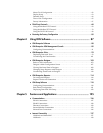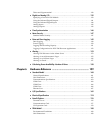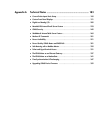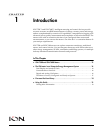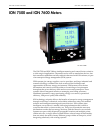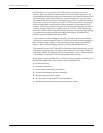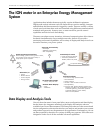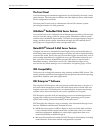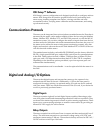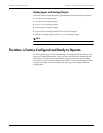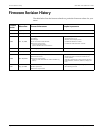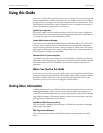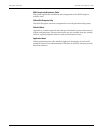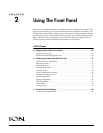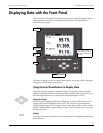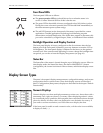
Communications Protocols ION 7500 / ION 7600 User’s Guide
Page 16 Chapter 1 - Introduction
ION Setup™ Software
ION Setup is a meter configuration tool designed specifically to configure and test
meters. ION Setup offers an intuitive graphical interface for performing basic
meter setup, installing templates into meters, viewing real-time and reset
accumulated values, verifying meter calibration and measurements, and setting
up advanced security.
Communications Protocols
The meter can be integrated into various industry-standard networks. Data that is
measured by the meter can be made available to other devices using the Modbus
Master, Modbus RTU, Modbus TCP, and DNP 3.00 protocols, as well the MV-90
translation system. You can also configure the meter to import data from devices
on these networks. With these advanced communications functions, the power of
the meter can be utilized in most existing power monitoring systems. Any data
display and analysis software that works with Modbus RTU or DNP 3.00 devices
will also function with the meter.
The standard meter includes a selectable RS-232/RS-485 port (the factory default is
RS-232), a high-speed RS-485 port, and an IrDA optical port for communications
in the field. Order options include a 10Base-T Ethernet port or 10Base-FL fiber-
optic port, and a 33.6 kbps internal modem (both FCC and CTR-21 compliant).
Depending on the hardware options purchased, up to four separate ports can
communicate simultaneously.
The communications card is retrofittable – it can be replaced while the meter is in
the field.
Digital and Analog I/O Options
The meter has digital inputs and outputs that connect to the captured-wire
terminals near the base of the unit. Additionally, a LED on the front panel is
configured for energy pulsing. An optional analog I/O card can also be ordered
with your meter. There are retrofit instructions for this I/O card, if you desire the
card on a previously purchased meter.
Digital Inputs
The meter contains eight self-excited digital inputs capable of detecting a pulse
rate of 20 pulses/second and timestamping transitions with 1ms resolution. They
can be used for monitoring external contacts or pulse counting applications. These
inputs use a current sensing technique to monitor contact status by providing an
internal 30 VDC supply for self-excitation.
Relay Outputs
The meter contains four solid-state Form A outputs and three mechanical Form C
relays. The solid-state outputs have a maximum voltage rating of 30 VDC and
maximum current rating of 100 mA. The mechanical relays are rated at 250 VAC /
30 VDC and can switch up to 10A loads.



